Lauren Luna
Campus Beat Reporter
Santa Barbara citizens have started receiving their first doses of the COVID-19 vaccine for the past month. However, some eligible candidates have refused the chance to receive the vaccine upon its distribution.
According to the Santa Barbara County Public Health Department, 63.5 percent of allocated vaccine doses have been administered in the county. The county has mainly distributed the vaccines to frontline health workers and citizens over 75, and plans to distribute them to childcare workers and people over 65 in the next phase of the vaccination rollout.
A statement released by Santa Barbara county’s Public Health Department Director Van Do-Reynoso on Tuesday claims that 64 percent of residents aged 75 and up have been vaccinated — roughly 20,800 people based on population estimates. While this statistic is promising to some health officials, the herd immunity threshold has not been reached. According to Anthony Fauci, 90 percent of United States residents would have to be vaccinated to reach herd immunity.
However, polls conducted by Marina Pitovsky, a writer for The Hill, suggest that due to an unwilling fraction of the population, herd immunity may not even be a possibility in the near future.
“Nearly one in three people in the United States said that they definitely or probably will not get the COVID-19 vaccine,” said Pitovsky in her article.
Many are concerned about how quickly the vaccine has rolled out. Many say they want to “plan to wait and see if it is safe,” and that they may get it once it has been tested on more people. Though vaccine eligibility is opening up, a certain population has denied the validity of the vaccine despite having the opportunity to get it.
Zakiya Whatley and Titilayo Shodiya, writers for the Scientific American, cite that all social groups are reluctant to get the vaccine. It says that vaccine refusal is “most prevalent in wealthy, white areas,” but recent polls “indicate high levels of hesitancy and refusal among marginalized communities” as well.
“Nearly one in three people in the United States said that they definitely or probably will not get the COVID-19 vaccine.”
Whatley and Shodiya believe that before getting more of the population vaccinated, people need to recognize why anti-vaxxers resist immunization. They state that dismissing anti-vaxxers as “misinformed skeptics” can be dangerous because it stops people from considering why these people don’t believe in vaccination.
Vaccine supporters typically attribute anti-vaxxer attitudes, or vaccine-educated attitudes, as the community prefers to call them, to a lack of access to vaccine use and effectiveness.
In a poll conducted by The Bottom Line, 52 students from the University of California, Santa Barbara (UCSB) stated that they plan to receive the vaccine while six said no. One student of the latter group said that they have medical issues that have been complicated with vaccinations in the past, and also do not support the vaccination due to religious beliefs.
“I’m allergic to certain medicines and it’s part of my belief,” said the anonymous second-year student at UCSB.
A few other students surveyed do plan to get the vaccine, but they only plan to receive it if the vaccine is necessary to resume in-person classes in the fall.
As for the COVID-19 vaccine, specifically, anti-vaxxers are apprehensive to receive the vaccine based on the reported death rates among patients following their first or second doses of the vaccine. However, a German fact-checking site called Deutsche Welle (DW) investigated claims of COVID-19 vaccine-related deaths in six different countries and ultimately attributed none of the deaths to the vaccine.
In all the studied cases, those who died were 79 to 93 years old and died between one hour and 19 days after receiving the vaccine. Of the 113 people, 20 died as a result of ongoing COVID-19 infections, which created complications compounded with the vaccine. Additionally, 43 people died as a result of pre-existing conditions, according to Brigitte Keller-Stanislawski, the head of the Paul Ehrlich Institute’s Division Safety of Medicinal Products and Medical Devices.
For some anti-vaxxers, the underlying medical conditions that make vaccines unfeasible are reason enough to refuse a vaccine. According to an article written by Delaney Smith of the Santa Barbara Independent in 2019, people in Santa Barbara county have resented the ways in which mass vaccination has been enforced by public health officials, even before COVID-19. An interviewee, who chose to go by the name Amanda, claims she was “very much for vaccines,” until she suffered critical side effects with the Gardasil human papillomavirus vaccine. Along with her body going into organ failure, she explains that she experienced temporary menopause for 10 years before being able to have children.
Whether or not Amanda had any immunocompromising factors that may have made her exposure to the vaccine more dangerous, there is currently no medical evidence that proves a direct correlation between vaccination and other health problems.
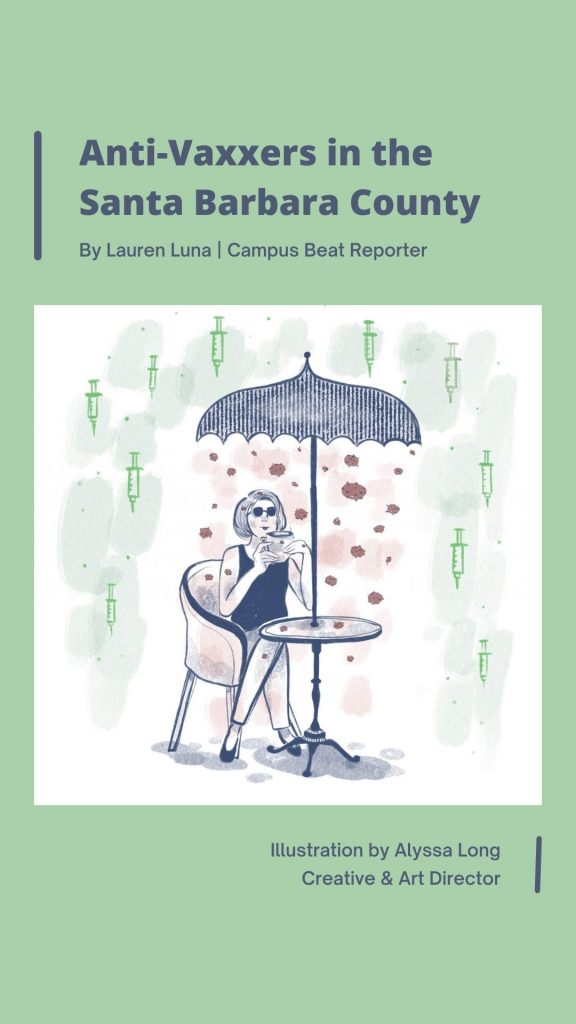
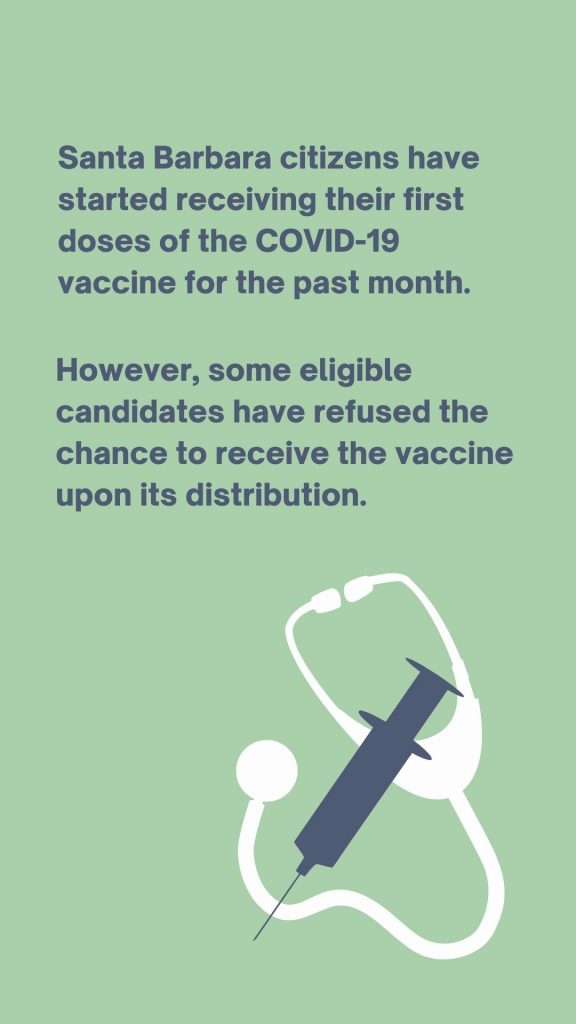
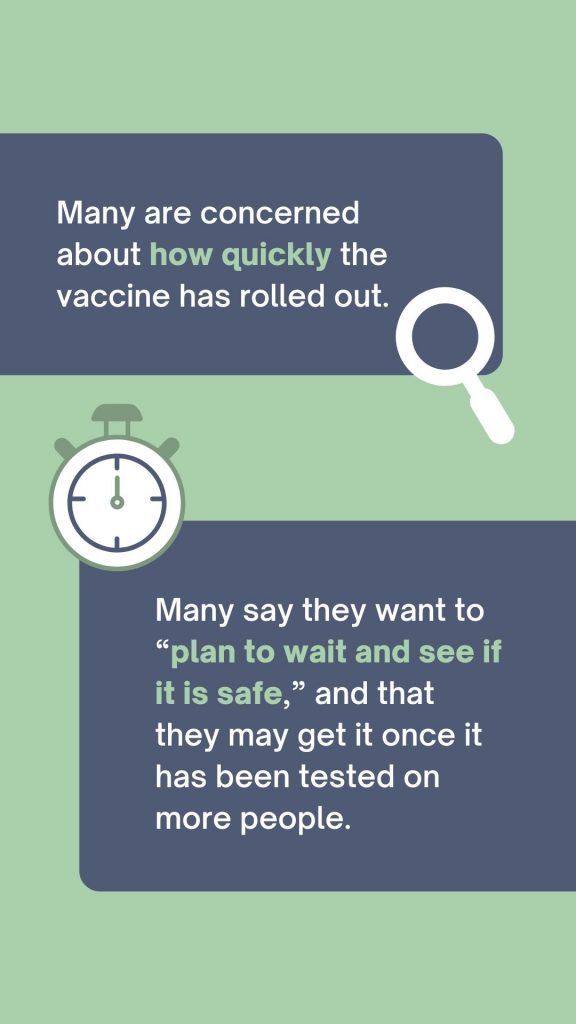
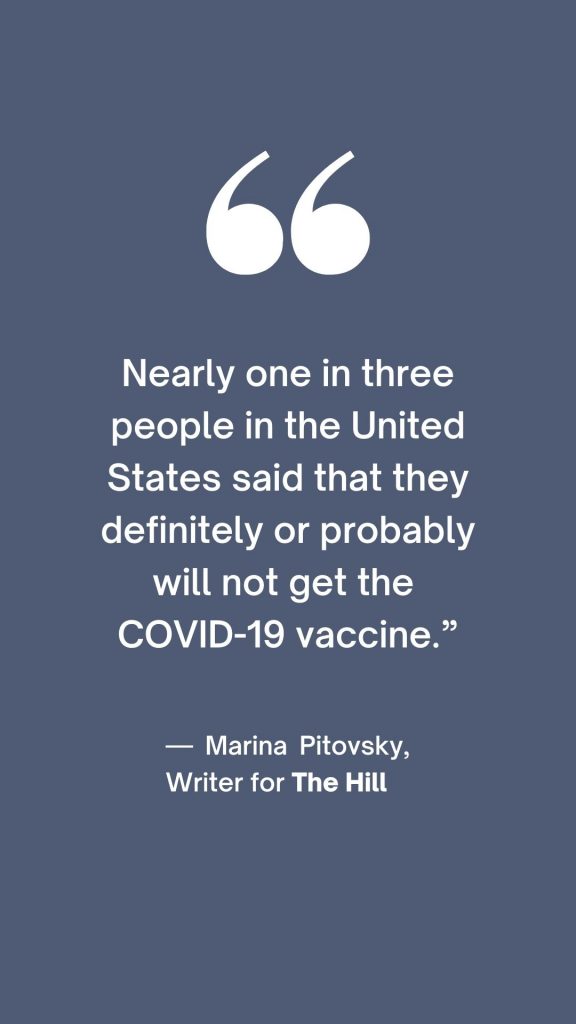
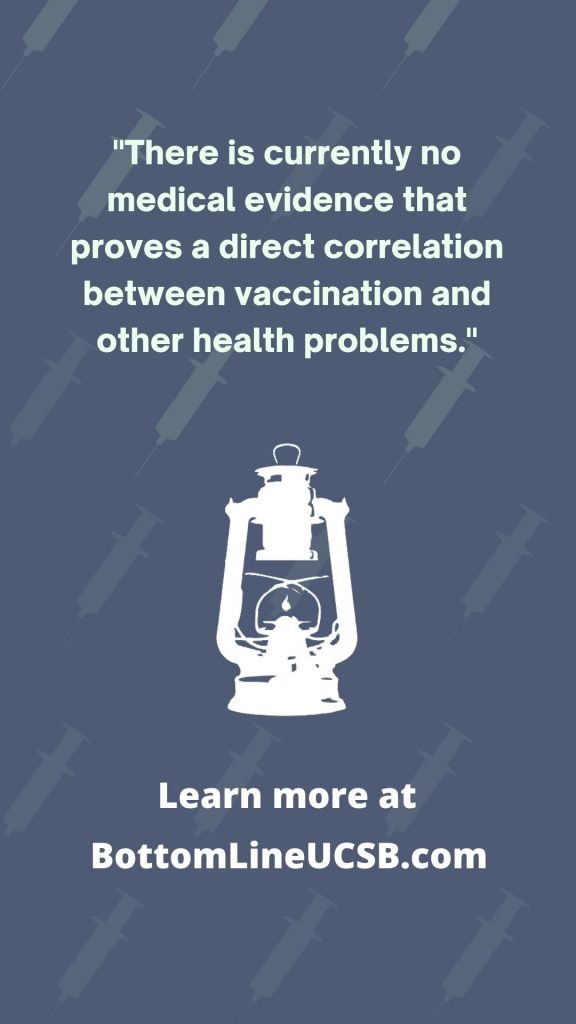




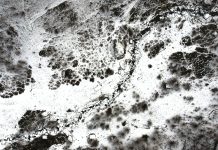
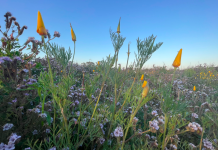

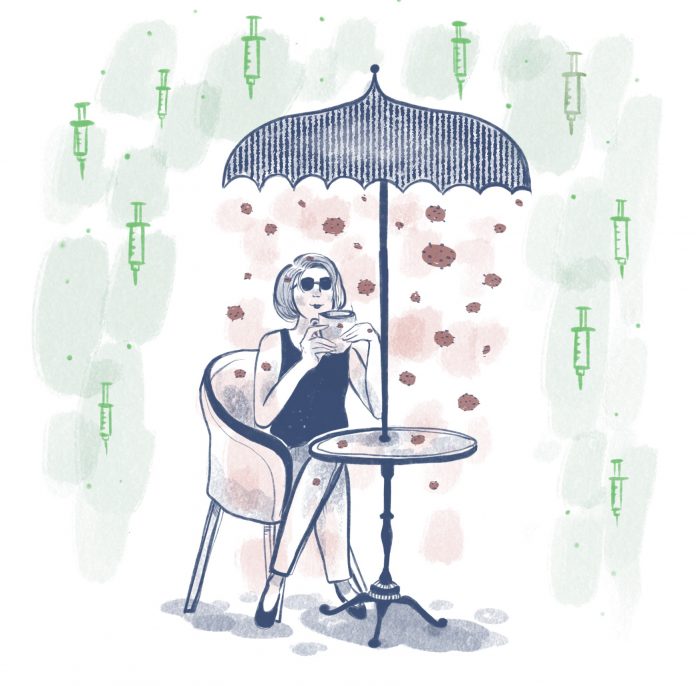
Please consider some people, as myself, allergic to the aluminum and metals in vaccines.
For years my mother and I would get rashes and feel Ill with past flu shots. The doctors kept saying must be egg products. Went a few years ago for emergency appendectomy and the MRI dye that was administered to me to pin point the area of pain made me react horribly. My hands and feet doubled in size, itchy red and i couldn’t breathe. The doctors concluded that I have reactions to vaccines and the body dye as there are aluminum and metals in them both thai said 25% people are reactive/allergic. I said “write that in my chart” thank goodness I did as my job now has been wanting me to get a vaccine shot. The are of people that are sensitive and or allergic or perhaps Vegan that cant handle all of the binders and fillers in a vaccine. Thank you
Comments are closed.